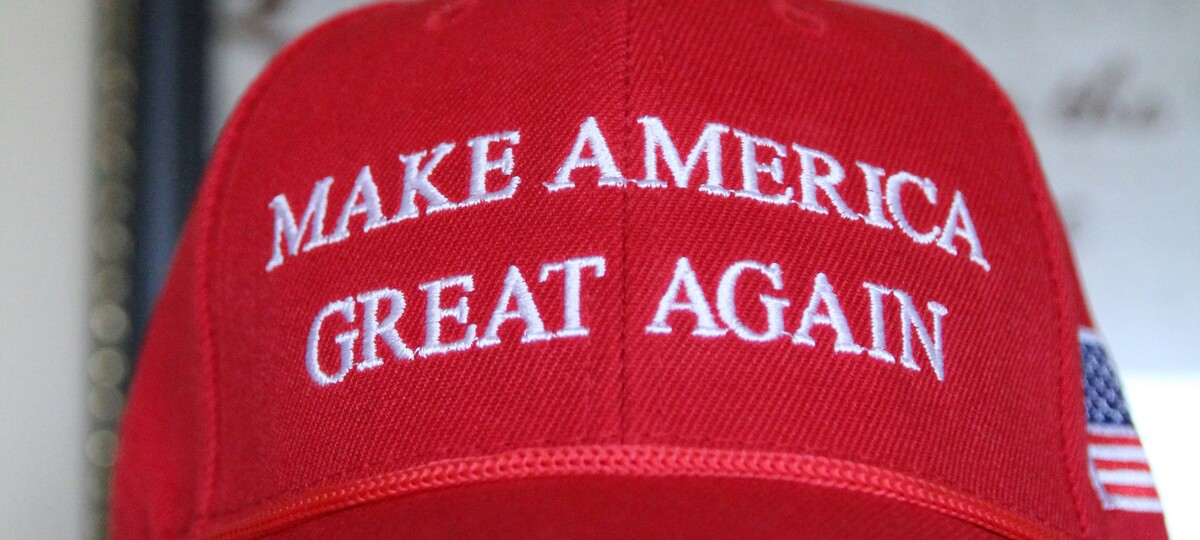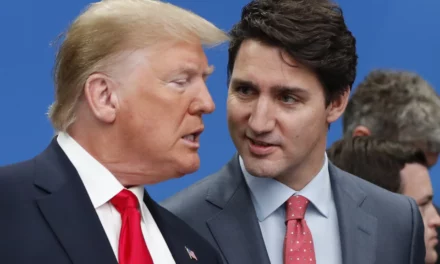We support our Publishers and Content Creators. You can view this story on their website by CLICKING HERE.

Who’d have thunk it? The Assad regime collapses in Syria after 54 years. Russian President Vladimir Putin’s hold on power seems undermined by imperial overstretch, and the mullahs of Iran have been unable to defend their skies and their leaders’ hotel rooms from Israeli attacks.
Leaders of the two largest nations in the European Union have been repudiated. Germany’s coalition is on the way out after the implosion of longtime consensus policies — open doors to “refugees,” shutdown of nuclear power, and dependence on Russian natural gas. And in France, Emmanuel Macron, the man occupying the strong presidency constructed by Charles de Gaulle 66 years ago, cannot rally a parliamentary majority.
Twelve months ago, Britain’s Conservative Party, after 14 years in power, won only 24% of popular votes in the general election. Now, the Labour government, which won a big parliamentary majority then, has only 21% job approval and 70% disapproval.
In usually placid Canada, the government of Prime Minister Justin Trudeau, whose father became prime minister 56 years ago, has suffered the resignation of the finance minister hours before a budget deadline and is projected to win just 10 seats out of 338 in next year’s general election.
Meanwhile, polling in the United States this month showed that, for the first time since President-elect Donald Trump descended that escalator in Trump Tower nine years and six months ago, more people have a favorable impression of him than an unfavorable one, by a margin almost identical to his 49.7% to 48.2% popular vote margin over Vice President Kamala Harris. Who’d have thunk it?
This looks like a tribute to the 45th and 47th president’s persistence under pressure — a quality always desirable in a president. Trump persisted in his claim that the 2020 election was stolen; a claim without merit, though Democrats in states such as Pennsylvania did violate their laws in an attempt to defeat him.
And, of course, the press, social media barons and large parts of the intelligence community did not play fair during his term and in the campaign. They suppressed on specious grounds the accurate revelations from Hunter Biden’s laptop just as they blared from the rooftops what Trump now calls the “Russia, Russia, Russia” collusion hoax.
In his concentration on his own grievances and maintaining his comeback hopes, Trump foisted weak “Stop the Steal” candidates on the Republican Party, candidates who gave Democrats their Senate majority. But any chance that he’d lose the 2024 Republican nomination was scotched in March 2023 when Manhattan District Attorney Alvin Bragg brought his specious “false business records” indictment against him.
It takes a certain strength of character to endure those legal attacks and slough them off as kangaroo court tactics, but ultimately, most voters agreed. And it is amusing to read accounts of Biden appointees seeking pardons to protect against Trump administration prosecutions: a classic case of projecting your own sins on your opponent, one who could have prosecuted former Secretary of State Hillary Clinton but didn’t.
Only once before, in 1892 — well before my time — have voters been able to compare the performances of two candidates as president over the immediately preceding eight years. In that case, they voted against the Republican “billion-dollar Congress” for overspending, especially on programs, such as Union Army pensions, unpopular with key segments of the electorate.
This year, polls consistently showed that most voters preferred the record of Trump’s administration to that of Biden’s. The latter’s policies sparked sharp inflation, which voters under 60 had not experienced in their adult lifetimes. And much of that overspending was on programs, such as student loan forgiveness, unpopular with key segments of the electorate.
During much of the campaign, the Economist magazine repeatedly made the point that the American economy has been growing faster than many foreign countries’. That provided a talking point for Biden among the journal’s elite audience. But most voters attributed the American economy’s buoyancy to policies of the Trump years — when low wages rose faster than average — not to the Biden years, when inflation ate up ordinary people’s wage increases and then some.
And they clearly disapproved of his open-borders immigration policy, which, as The New York Times’ David Leonhardt revealed after the election, produced record illegal immigration.
Meanwhile, even as Trump rolls out the names of appointees — some startling, many impressive — at a record pace, social media billionaires who suppressed news to defeat him four years ago have been ponying up $1 million donations for his inauguration. Similarly, foreign leaders have sought his favor. Macron invited him to the dedication of the restored Notre Dame cathedral, and Trudeau jetted down to Mar-a-Lago from Ottawa.
Events are not going the way Trump’s sophisticated critics at home and abroad have expected. America’s enemies in Russia and Iran have suffered setbacks, while Israeli Prime Minister Benjamin Netanyahu’s refusal to heed Biden administration cautions has made Israel safer and its enemies weaker.
America’s allies, even while grumbling, have responded to Trump’s complaints. In 2014, the year before he came down the escalator, only three NATO members were spending more than 2% of GDP on defense. In 2024, 23 were spending more, and only eight lagged behind. Quieter, more tactful presidents sought the same result. Trump got it.
At this time last year, Democratic politicians, business elites and foreign leaders were nervously confident that Trump’s presidency was just a freakish four-year interlude in a period of Democratic administrations covering 16 of the 20 years starting in 2008. Now, they may be fearful or, in some cases, hopeful that 2016 was the beginning of a multiterm Trump Republican period with a freakish four-year Biden interlude.
Trump’s current dominance owes something to luck and something to his opponents, and his second presidency will surely encounter setbacks. But it also owes something to the man’s uncanny persistence and shrewd insight. Nine years and six months ago, who’d have thunk it?
Michael Barone is a senior political analyst for the Washington Examiner, resident fellow at the American Enterprise Institute and longtime co-author of The Almanac of American Politics. His new book, “Mental Maps of the Founders: How Geographic Imagination Guided America’s Revolutionary Leaders,” is now available.
Photo credit: Natilyn Hicks Photography at Unsplash

 Conservative
Conservative  Search
Search Trending
Trending Current News
Current News 




